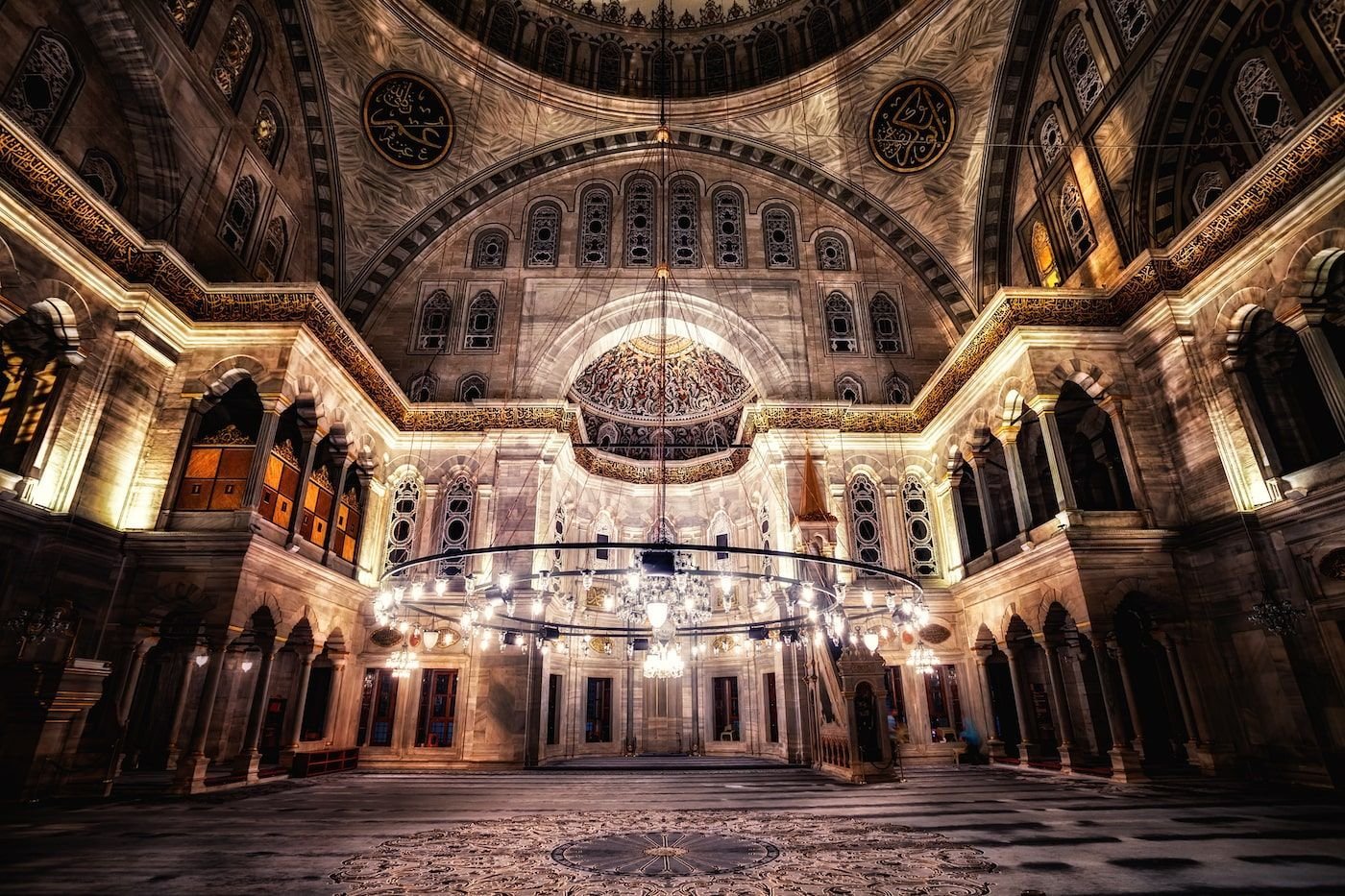Dress Code: It’s important to dress modestly when visiting a mosque. Women should wear loose clothing that covers their arms and legs, and a scarf to cover their head. Men should also dress modestly, wearing long pants and covering their shoulders.
Footwear: Shoes must be removed before entering a mosque. Many mosques provide a place to store shoes, or you may need to bring a plastic bag to carry your shoes with you.
Prayer Times: Mosques have five daily prayer times, and visitors should be aware of these times when planning their visit. It’s respectful to avoid visiting during prayer times.
Mosque Layout: Understanding the layout of a mosque can help visitors appreciate its architecture and design. The prayer hall is the main area where worshipers pray, and the mihrab is the niche in the wall that indicates the direction of Mecca.
Islamic Art: Mosques are often decorated with intricate Islamic art, including calligraphy, geometric patterns, and floral designs. Taking the time to appreciate these details can enhance your visit.
Islamic History: Mosques often have a rich history and cultural significance. Researching the history of a mosque before visiting can provide context and appreciation for its importance.
Etiquette: Visitors should respect the etiquette of a mosque. This includes being quiet, refraining from taking photos during prayer times, and avoiding displays of public affection.
Guided Tours: Many mosques offer guided tours that can provide a deeper understanding of the mosque’s history, architecture, and significance. Check with the mosque beforehand to see if guided tours are available.
Mosque Activities: Some mosques offer community activities, such as lectures, classes, and community events. Checking with the mosque ahead of time can help visitors plan their visit around these activities.
Respect: Above all, visitors should approach their mosque visit with respect and an open mind. Mosques are places of worship and should be treated with reverence and appreciation for their cultural and spiritual significance.




